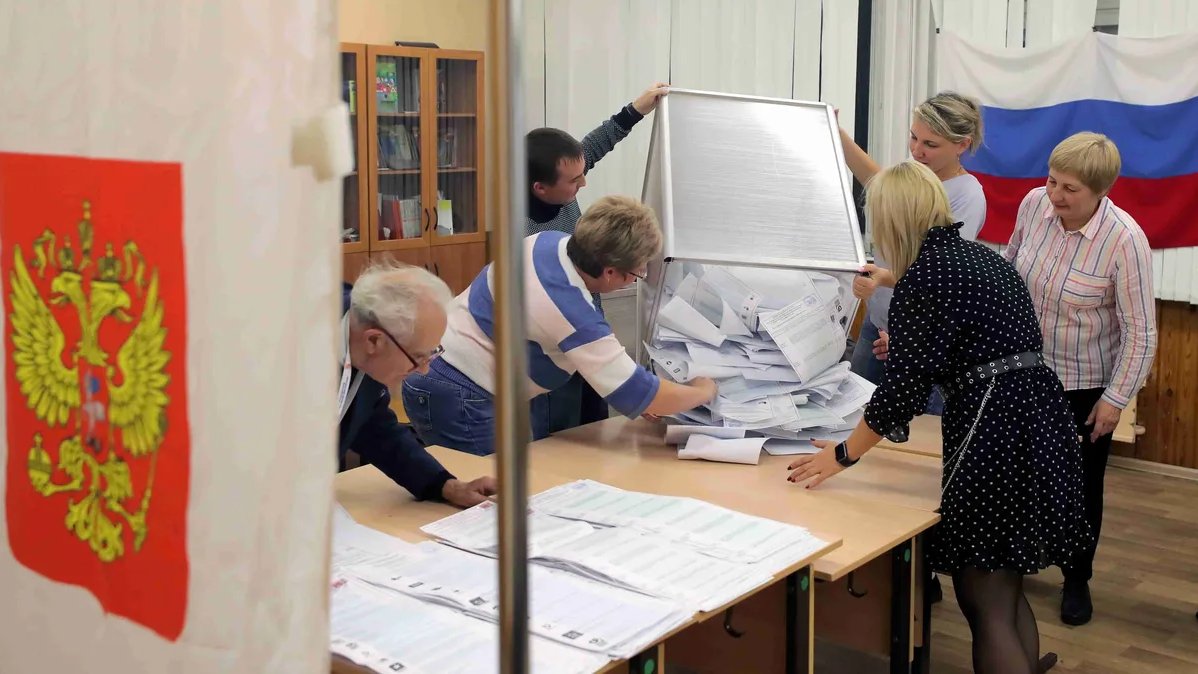Local and regional elections have been taking place across Russia since Friday, amid widespread popular apathy. Novaya Gazeta Europe editor-in-chief Kirill Martynov argues that despite there being no chance of a fair contest, Russians can still use their vote to send a message to the Kremlin.
Russia’s second election campaign since the start of the war is now over. Last year, electoral success led to new levels of insanity: just 10 days after voters demonstrated “decisive support” for his presidency, Putin announced the first mobilization of Russia’s military reserves since World War II.
For an ageing dictatorship, elections are like plastic surgery, with each “people’s act of love” granting a dictator licence to try out ever-crazier ideas, a pattern we might well see repeating itself after this weekend’s regional and local elections.
Campaigning this year has taken place against a backdrop of deep-seated popular apathy with many Russians feeling a sense of resignation about the regime’s permanence, a feeling that arguably extends to the candidates themselves. In Moscow, where incumbent mayor Sergei Sobyanin is set to win another term, the most memorable campaign ad featured Sobyanin meeting with participants in the “special military operation” — the term officially used in Russia to describe the war in Ukraine — and presenting one of them an honorary weapon for good luck.
The candidates fielded by the main political parties for Moscow’s mayoralty vied to see who among them was the most adept at avoiding reality, each one essentially a clone of Sobyanin himself.
Leonid Zyuganov, the candidate of the Communist Party and the grandson of its leader, pledged to repurpose the capital’s industrial zones if he won, though his campaign slogan “Return our future” could be taken to imply that someone has stolen it.
The candidate of the For a Just Russia party, Dmitry Gusev, chose to feed off the electorate’s fear of immigrants by promising to crack down on what he termed “ethnic crime.” Boris Chernyshov, a protégé of the late ultra-nationalist politician Vladimir Zhirinovksy, barely even stands out in such company.
Vladislav Davankov of the New People party hopes to win over female voters with his “million IT-girls” policy, which would teach women the basics of computer programming and artificial intelligence. Under other circumstances, such an initiative might almost be considered progressive, but female voters are far more likely to be wondering why there aren’t any anti-war candidates than why there are no women on the ballot.
The mayoral candidates’ rhetoric revolves around local issues that Muscovites care about, but that belies the fact that the mayor of Moscow isn’t a local official in any sense: the post is these days seen as a key position in the federal political system.
Emotionally, it’s easy to understand the appeal of boycotting these “elections”, especially given the prevalence of electronic voting machines. These so-called ‘black boxes’ allow Russia’s intelligence services limitless opportunities to tamper with the ballot, as Novaya Gazeta revealed in a series of investigations in autumn 2021. Lest we forget, these are the very machines that prevented independent candidates from winning any seats in the last elections to the Moscow Duma.
The war itself is being co-opted to further corrupt the electoral system, with sham elections being held in the four occupied Ukrainian territories that Russia claims to have absorbed into its territory, where all Russia’s sanctioned opposition parties have fielded candidates.
The rights of journalists and election observers have been dramatically reduced at this election, as Russian democracy becomes more a spectacle of support for Putin than an attempt to convince citizens that they chose their own government.
Nevertheless, any vote cast (and counted) against pro-government candidates — in any election at any level, anywhere in Russia — is a legal and safe way for Russians to demonstrate their anti-war stance.
Symbolic gestures of resistance are significant when living under a dictatorship in wartime. The 16 million Russian citizens who voted against the removal of presidential term limits in the pseudo-referendum of 2020 are evidence that opposition to dictatorship does exist in the country.
These elections, of course, are just a trial run for the far more frightening prospect of the 2024 presidential campaign, which, in the third year of the war (for few believe it will end before then) and after a possible fresh wave of mobilisation, will require the Russian people to simulate love for their leader once again.
Join us in rebuilding Novaya Gazeta Europe
The Russian government has banned independent media. We were forced to leave our country in order to keep doing our job, telling our readers about what is going on Russia, Ukraine and Europe.
We will continue fighting against warfare and dictatorship. We believe that freedom of speech is the most efficient antidote against tyranny. Support us financially to help us fight for peace and freedom.
By clicking the Support button, you agree to the processing of your personal data.
To cancel a regular donation, please write to [email protected]

